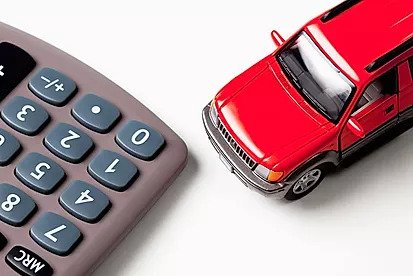The best way to maximise your tax refund this year (and every year for that matter) is to make sure you claim everything that you are entitled to. The greater the tax deductions you claim, the larger your refund is likley to be.
Below are a few helpful hints and tips on how you can go about claiming the deductions that you are entitled to.
1 – Be organised

In general, before you can claim a deduction, you must satisfy three basic principles:
- You must have spent the money yourself;
- The expenditure must be related to your income; and
- You must have a record to prove the expense.
More often than not, the expense is not claimed simply because it has been forgotten. Either the receipt has been thrown out, misplaced or was never received.
There are many ways to keep track of your costs. Here are a few you can implement before completing your 2018 tax return:
-
- If you have a lot of cash expenses, you will need to go through all your receipts and keep all the ones that relate to the earning of your income. For example, this could be fuel for your car, materials/tools for work, stationery, books etc. Nowadays, there are many free apps you can use to scan and store them online or on your phone. And even though it is 2018, we find keeping receipts and invoices in folders or boxes still works just as well.
- If you have a lot of expenses on your bank/credit card, every month, you should go through your statements and highlight all the work-related transactions. Come tax time, you will have a neat and simple record of all your expenses. If your statement does not show the supplier’s name or a description of the purchase, you must write these details in yourself.
2 – Claiming your car travel
Car travel expenses are some of the most incorrectly claimed deductions and, as a result, the ATO will be placing extra attention on taxpayers who claim these expenses in 2018.
A lot of people mistake traveling from home to work as a deductible expense. This is not the case and should not be claimed in your tax return.
However, there are many situations where claiming your car travel is perfectly allowable. These include:
-
-
- Traveling between workplaces/worksites
- Traveling to client meetings, training sessions, seminars etc
- Traveling to and from work if you must carry bulky tools/equipment and cannot store them at work
- Carrying private patient files and other sensitive materials between home and work
-
If you’re using your car a lot for work, it is best practice to keep track of all your car expenses (fuel, repairs, registration, insurance, tolls, parking etc). Keeping a logbook is also essential to maximising your car claim.
3 – Claiming your home office expenses
In today’s society, many people find themselves working longer hours. This trend often results in working additional hours from home both after hours and on weekends. This is especially true of small business owners who, more often than not, are burdened with record keeping for their business.
Depending on your personal situation, you may able to claim a proportion of costs such as:
- Rent or mortgage interest
- Gas and electricity
- Internet and home phone
- Home office stationery and furniture
The types of expenses that you can claim, and the amount you can claim are dependent on whether you work solely from home, or whether you only work part time/nights from home. It also depends on the type of work you do and the whether you have a dedicated space at home used solely for work.
4 – Charities and Donations
Another expense that is often forgotten are the donations made during the year.
Donations are given out of kindness and dedication to a cause, and we often don’t think about the tax benefits we can receive for our generosity. Nevertheless, the Australian Government reward your kindness with a tax deduction.
One of the most overlooked deductions within this category are school building fund contributions. If your child is enrolled in a semi private, fully private or catholic school, these contributions could add up to thousands of dollars per year. Keep a record of these payments and the invoices provided to you by the school.
To be able to claim donations to a charity, the payment must satisfy a few conditions. They are:
- The donation must be $2 or more;
- You must have a valid receipt/invoice;
- The charity/organisation must be a Deductible Gift Recipient;
- The donations must be monetary or a financial asset (eg you can donate a car and claim a deduction in certain circumstances. But you can’t get a deduction for donated clothes).
5 – Other work-related expenses
Different occupations have different expenses that are able to be claimed. Generally, deductions are occupation specific. For example, a doctor will claim different deductions to an electrician, and a plumber will incur different expenses to a teacher.
There are many small expenses that you incur for work which add up over the course of the year.
Some expenses are more obvious than others such as tools, seminars/training and so on. But some are missed like your mobile phone expenses, stationery, memberships/subscriptions etc.
If you incur an expense related to your work, then more often than not, it will be deductible.
As always, keep track of all these expenses and come tax time we will assist you in maximising your tax deductions.
Find out more
Listed here are a small sample of what you might be able to claim.
For more information on what you are entitled to and to maximise your tax refunds, please speak to us and we can steer you in the right direction.

